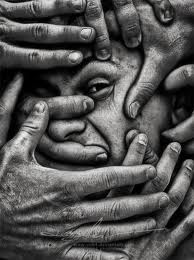TURKEY:Political and Human Rights ...
Did you protest?
Here are 52 years for you!
One of the most important court cases of recent years, the “Ankara Hopa case,” is starting on Dec. 9. The case is very important because it concerns the “right to protest,” a democratic right of every citizen. After all, the charges directed to the 29 people – mostly university students – arrested in connection with the incident of the Black Sea town of Hopa and related protests may set an example for future protests, even the tiniest ones.
Well, how did we get to this point from May 31 and the incidents in Hopa and Ankara?
HOPA INCIDENT:
Prime Minister Erdoğan’s election convoy arrived in Hopa for an election rally and was stoned by demonstrators. Upon this, police used excessive force toward those who were protesting hydroelectric power stations (HES). One of the prime minister’s body guards was injured when he fell off the election bus. Dozens were injured and detained in Hopa, while another person, Metin Lokumcu, died of a heart attack. Seven of the 16 people arrested in Hopa that day are still in jail awaiting trial.
ANKARA PROTESTS:
The same evening, a protest was organized in Ankara with a call from the Confederation of Public Sector Trade Unions (KESK). More precisely, it could not be organized. Police intervened when a press statement was to be read aloud in front of the provincial headquarters of the Justice and Development Party (AKP). Dilşat Aktaş was hit in the abdomen and her hip was broken. She was left in the middle of the road thinking she was dead (Aktaş is now not the victim of this incident but a defendant). Fifty-four people were detained and several house raids were carried out. Today, 22 people who participated in the demonstrations in Ankara are under arrest waiting to be tried, but not much is mentioned about those people having been tortured and sexually harassed during detention.
WHAT ARE THE CHARGES?
In the indictment that was released four months after the arrests, “opposing the government” and “having a leftist world view,” were considered as crimes. Among the evidence were books that were collected and banned in the ‘70s, flag poles found at the “crime scene,” an umbrella with the logo of Chamber of Medical Doctors, notebooks of university students and a Feminist Policy magazine. Separately, the 79-year-old Halkevleri community centers are accused of being “under the guidance of the armed terror organization.”
COMMUNITY CENTERS:
According to the indictment, Halkevleri “organize regular actions and activities relevant to the country’s agenda” and, among their “illegal activities,” stand in solidarity with Palestine and protests against the occupation of Iraq. Moreover, even those cases concluded with “lack of ground for legal action” and acquittal years ago were included in the file. According to this, borrowing books from the centers and participating in their activities were also crimes. The “public interest association” status of Halkevleri was revoked on April 4, and they are now treated as “terror cells.”
‘BETWEEN 17 AND 52 YEARS’:
According to the indictment prepared by the office of the special court prosecutor, for each defendant jail terms between 17 to 52 years are called for. The first hearing of the case will be held at Ankara’s special criminal court. One of the weaknesses of the case that is “to be debated most” is due to the indictment being prepared based on police “information notes” and “opinion pieces.”
[HH] In front of Ankara Courthouse
Is it a crime to protest? Those who oppose HES, who throw eggs or who demand free education, are they terrorists? Can an umbrella be classified as a “weapon?” Can books and publications found in those house raids that are very similar to those of Sept. 12 raids be considered as criminal evidence? What about the rights of those people who have been subject to ill treatment and tortured during detention? How will the problems of 52 years of disproportionate force and disproportionate punishment be solved?
If Turkey is to pass the tests of justice and sincerity, these questions need to be answered. On Dec. 9 when the case is due to start, these questions will be asked in front of Ankara Courthouse. Well, especially if the police once more try to block it with gas and truncheons.
Mehveş Evin
November/30/2011


